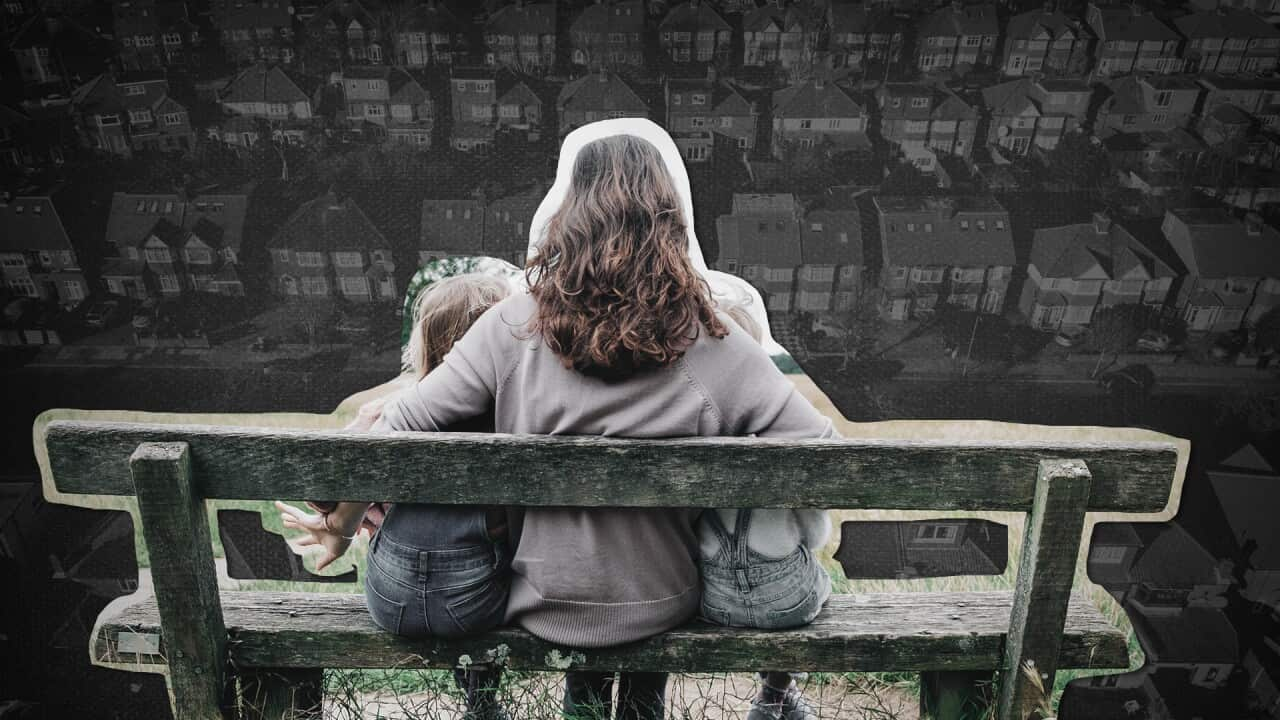This story contains reference to domestic violence
Diana is a solo mum living in Victoria. After fleeing the family farm with two children, she struggled to find housing.
At the lowest point, Diana lived in her car with her young son, outside a fast-food outlet.
"My son was in year 12 and it was just awful. Unbelievable. It's really hard to even get the words out about how we felt," said Diana, 53.
"It was the worst time of our lives. It was absolutely devastating and it caused us so much stress."
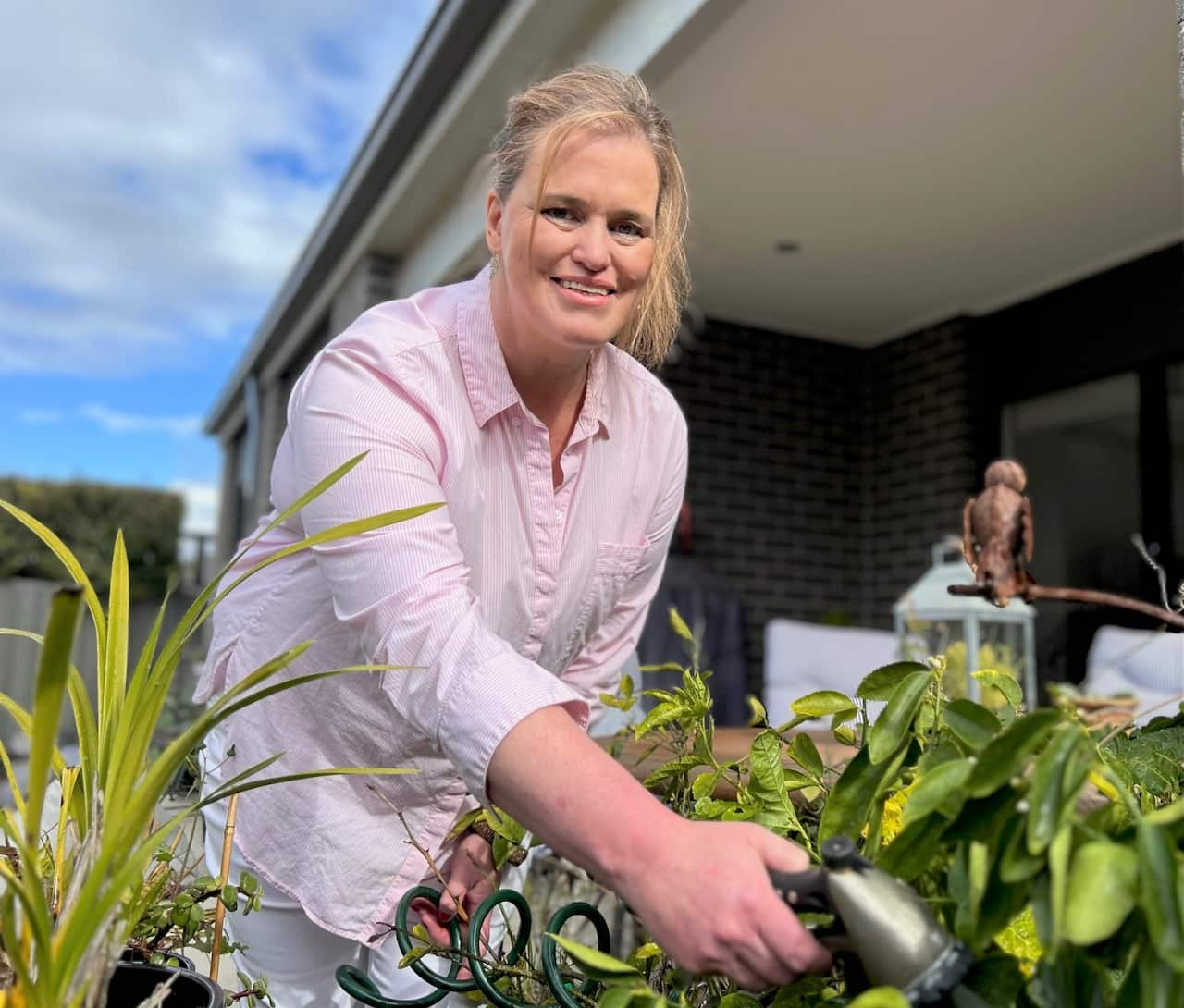
Diana grew up on a farm and enjoys growing her own food. Source: SBS / Scott Cardwell
"I was also battling cancer at that stage. It had affected my stomach, and I was on a feeding tube practically 24/7," she said.
"Having feeds go through to my stomach while living in the car, I had to hook it up on makeshift power outlet. It was so hard.
"I don’t even know how we got through that. It is something that no-one should ever have to experience."

Kate Colvin, CEO of Homelessness Australia, said 45 per cent of women and girls in Australia seeking homelessness support have experienced domestic and family violence. Credit: SBS / Sandra Fulloon
Requests for housing support increasing
Recent research by Homelessness Australia reveals an alarming rise in the number of already homeless women and girls seeking assistance.
"Our analysis found that women and girls coming to homeless services who have already lost their home has increased by 20 per cent in the past three years," CEO Kate Colvin said.
Requests for housing support increased from 24,517 in May 2022 to 29,449 in March this year.
"Around 45 per cent are fleeing family and domestic violence. Others are squeezed out into homelessness by the rental crisis," said Colvin.
"The sad reality is that when women come to a homelessness service and can't get the help they need, if they're fleeing family violence, often they return to that situation. It feels safer than being on the street," she said.
Diana understands the housing dilemma all too well. The New Zealand-born former farmer has spent years in and out of temporary accommodation.
"Initially, I had no income at all, so finding a place to rent was impossible," she said.
"Even when we did find a property, I had PTSD and couldn't work. So, my kids did what they could, but of course nowhere near enough to cover the rent.
"It is devastating and you feel so small, like you are not worthy of anything.
"Finally, St Vincent de Paul got us into a safe house in Melbourne and we stayed there for a year."
More than 400,000 older women in Australia are thought to be at risk of homelessness.
The federal government's Housing Australia Future Fund includes dedicated funding for 4,000 homes for older women at risk of homelessness.
As well, the federal government has approved grants for the construction of thousands of social and rent-capped homes, supported by its $10 billion housing fund.
However, Homelessness Australia says more is needed.
"[Homelessness] just keeps getting worse and worse. Rents are increasing relentlessly. We also have record low vacancy rates," Colvin said.

Global Sisters founder Mandy Richards. Source: SBS / SBS Sandra Fulloon
New housing initiative
Global Sisters is a not-for-profit trialling a new initiative that aims to get groups of at-risk women into their own homes.
"Called Little Green Houses, the scheme provides affordable housing ownership to Australian women who are on low incomes and those facing housing insecurity," said founder Mandy Richards.
A $3 million pilot project aims to build up to eight small, energy-efficient houses in regional NSW by Christmas. Pilot projects in other states are due to follow, with ownership backed by low-cost loans.
"These homes are for women who are completely locked out of the housing market," Richards said.
"Many cannot access a mortgage, so they do not have a hope in hell of buying a house in a land package."
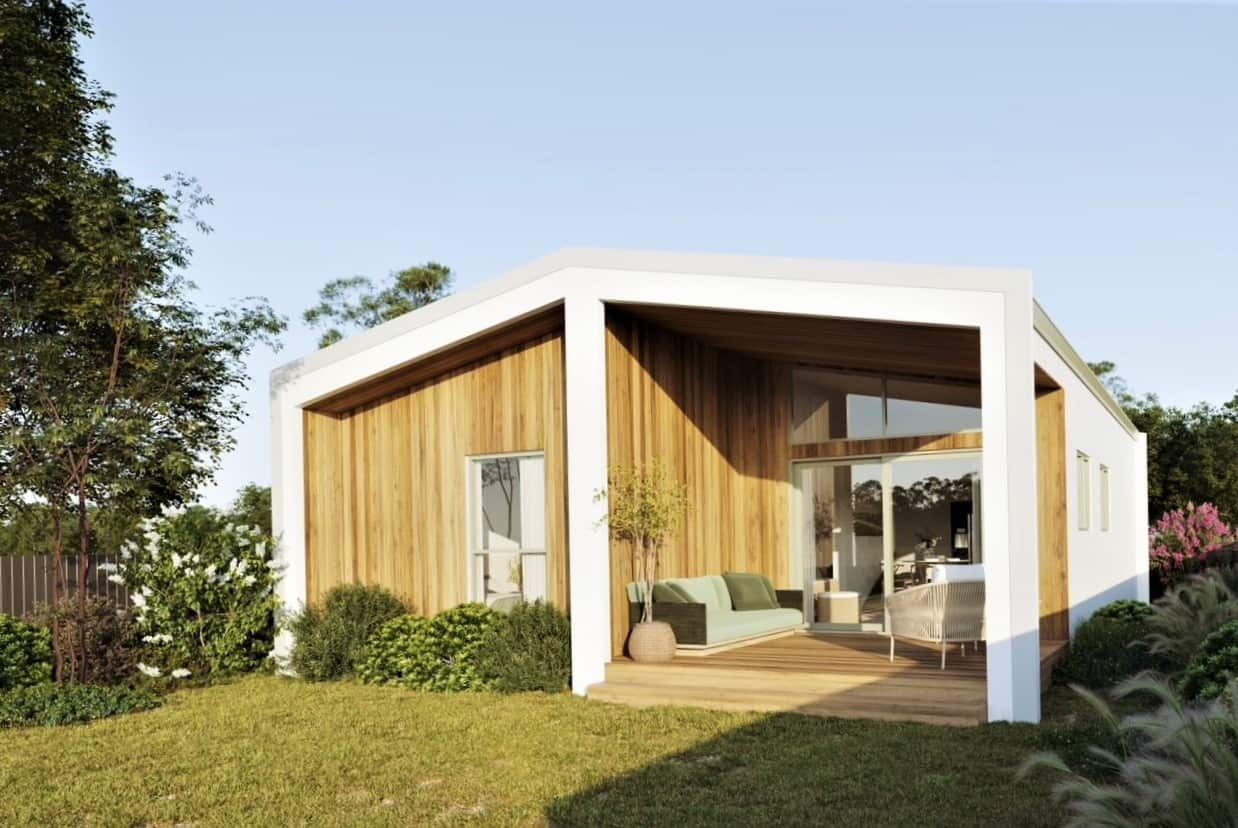
One of the Little Green Houses designed for the pilot project. Source: Supplied / Wild Modular / Global Sisters
The first phase of the project is focused on supporting solo mums and their children.
"If we can help women achieve economic security, then we can reduce homelessness for some women and children and prevent them from living in cars and couch surfing," Richards said.
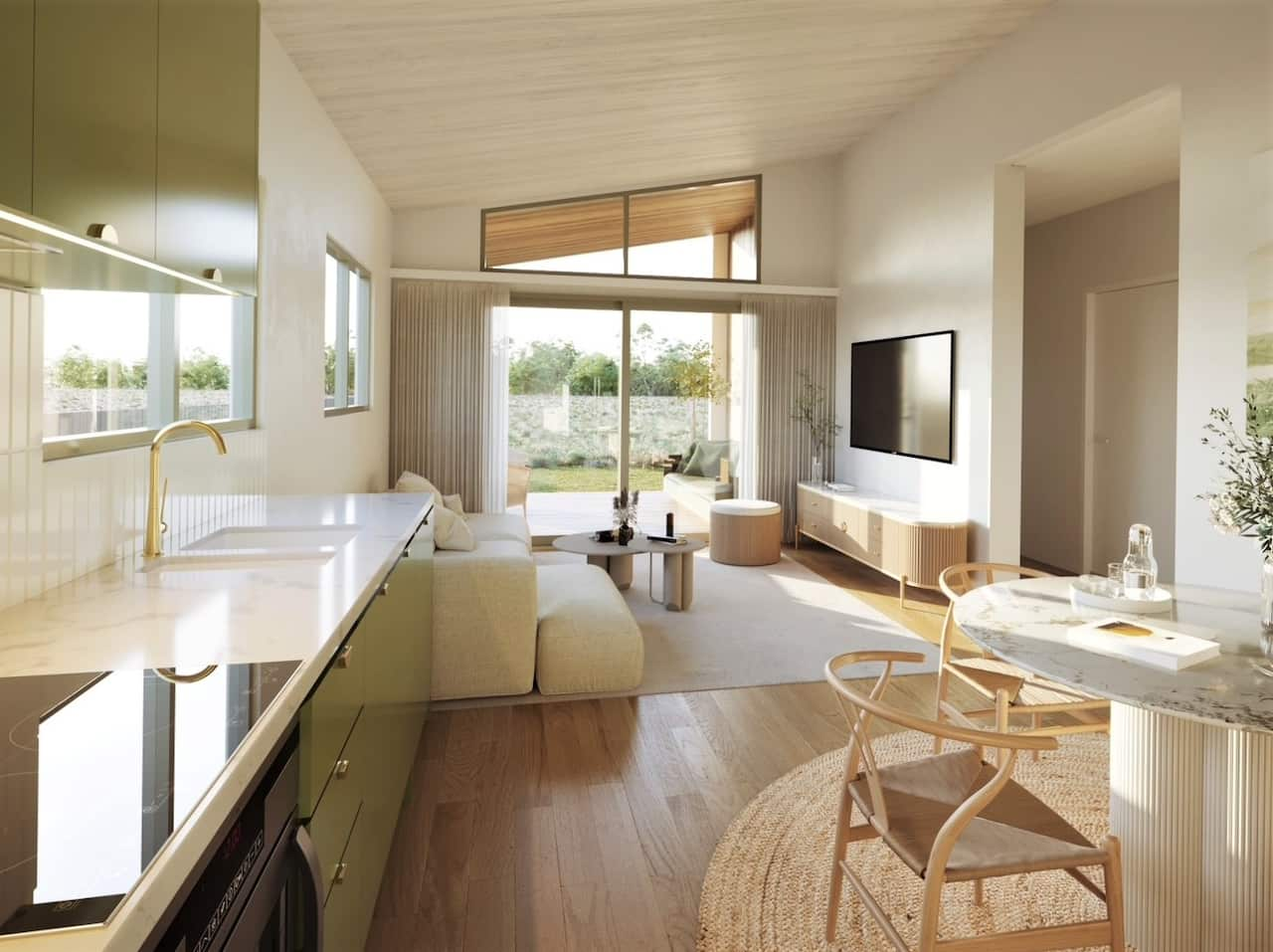
The proposed interior of a Little Green House, designed for the pilot project. Source: Supplied / Wild Modular / Global Sisters
"They are really beautiful and highly energy efficient," Richards said. "And we aim to ensure that repayments stay below 35 per cent of a low income such as social security payments."
Diana and her daughter Emma, 30, were forced to move again last year and now pay $535 per week for their four-bedroom home.
They are among candidates selected for a Little Green House.
'Huge savings on bills'
"It would be a dream come true to own our home, and pay the mortgage back below the rate we are paying in rent," she said.
"The houses are energy efficient, which means huge savings on bills.
"At the moment, electricity, gas and water keeps going up as everyone knows and it's extremely hard to make ends meet."
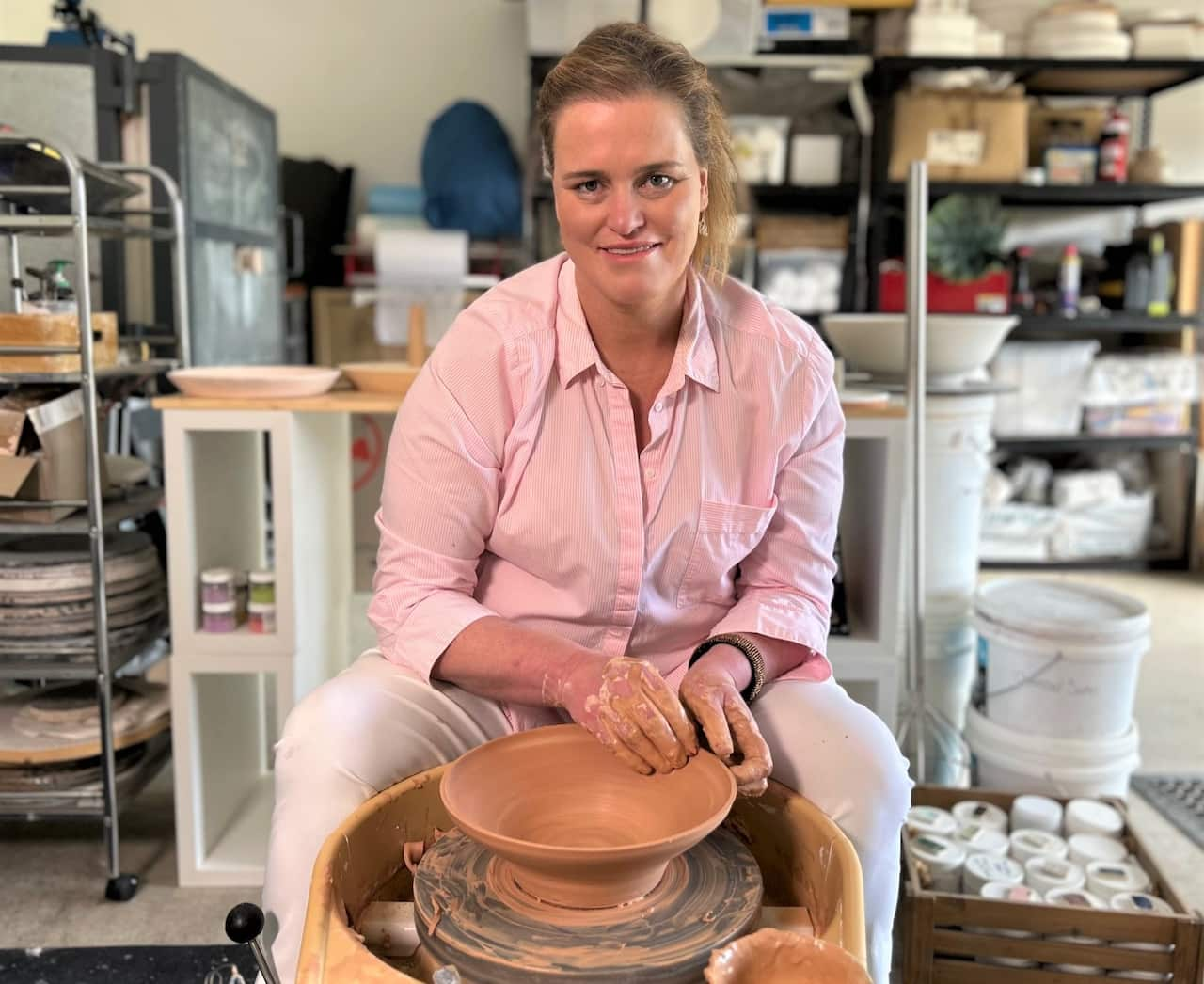
Diana runs a ceramics business from home, which supplements her income. Source: SBS / Scott Cardwell
"I make around $15,000 each year from selling my ceramics and I love it, but it’s not enough to pay bills and save for a mortgage.
"I have no savings, no super. All we earn goes on rent and bills. So, to buy a home [on the open market] now that I am in my mid-fifties, seems impossible."
Emma runs a home-based jewellery business but both say last year's house hunt left them traumatised.
"My daughter and I looked at 122 rentals and we were not accepted for any of them," Diana said.
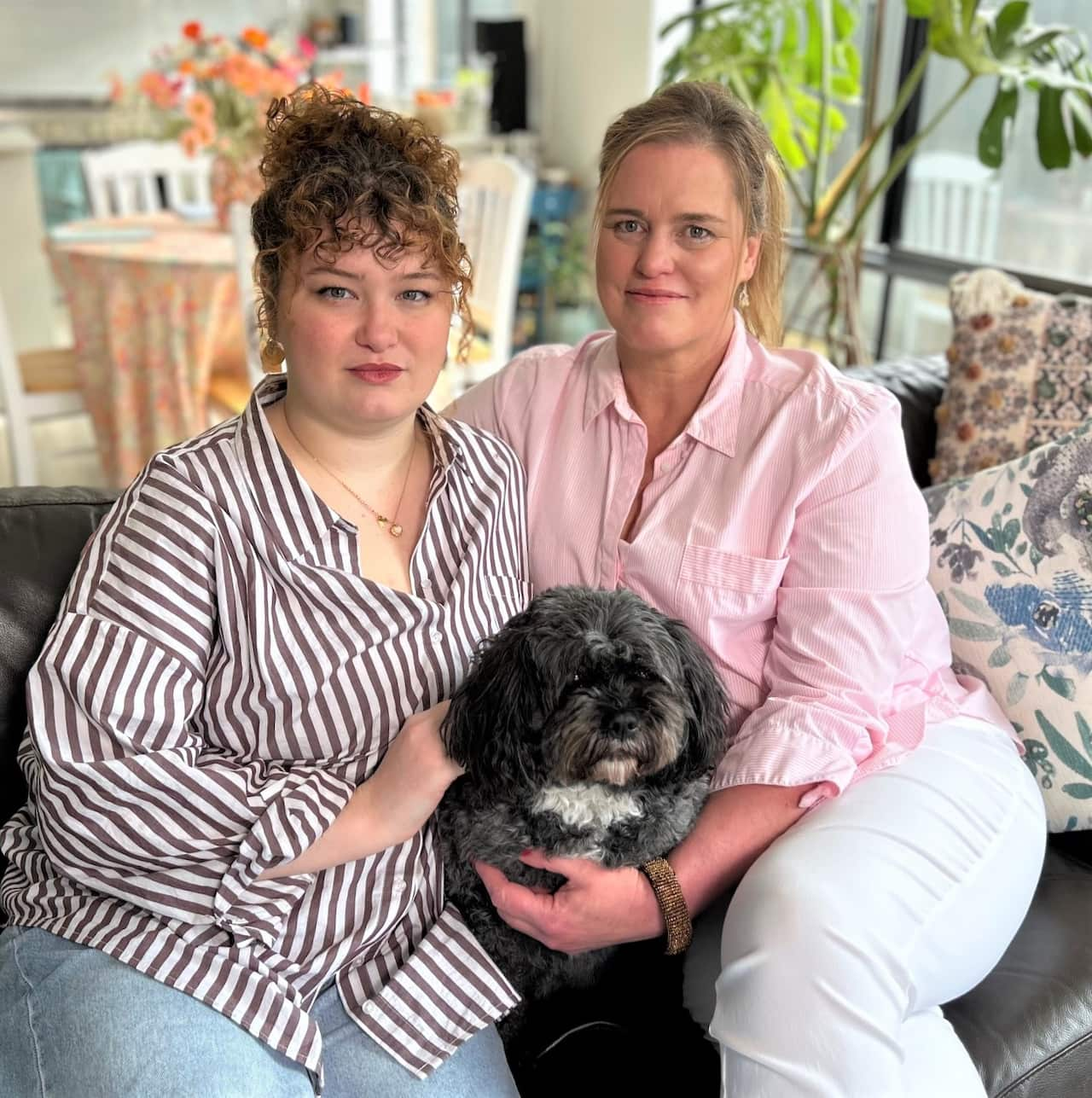
Emma, (left) with her mum Diana at home in regional Victoria. Source: SBS / Scott Cardwell
Daughter Emma agrees: "Growing up during a rental crisis, and having to move house every few years it almost becomes the norm. And it is not. You should be able to settle."
"In an ideal world, Australia needs to completely overhaul the system. It just doesn't work. There's not enough funding, there are not enough people hands-on helping."
Best hope for security
Mother and daughter fear for their future, as the end of their current lease approaches.
"We both struggle with health issues," said Diana. "I have PTSD from years of stress and recently had surgery to remove a sarcoma in my leg.
"I have worked so hard since I was 15 years old and every time I took one step up the ladder, I fell back down because of these health issues."
Their best hope for security is a Little Green House.
"Imagine, just imagine moving into our own home with a garden, knowing that it's safe.
"And it would be ours. No one could take it away from us," she said.
Homelessness Week runs from 4 August to 10 August 2025.
If you or someone you know is impacted by family and domestic violence, call 1800RESPECT on 1800 737 732, text 0458 737 732, or visit 1800RESPECT.org.au. In an emergency, call 000.


